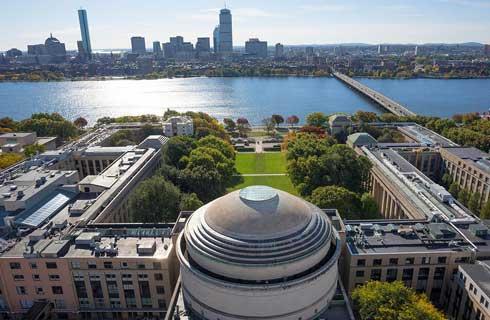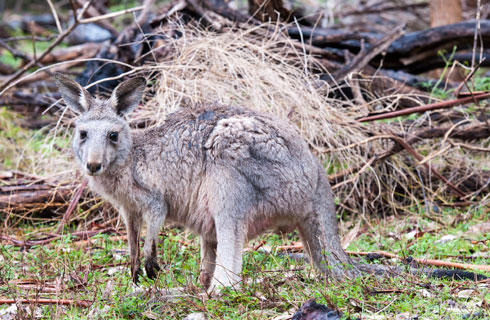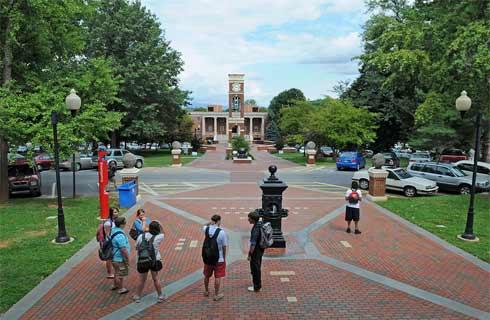生物科学理学硕士
MS in Biological Sciences

学历文凭
Masters Degree

专业院系
Columbian College of Arts and Sciences

开学时间

课程时长

课程学费

国际学生入学条件
Applicants must hold a Bachelor's degree from a regionally accredited college or university. Applicants who have earned their degrees outside of the US must hold degrees from institutions in compliance with their national standards.
English Language Requirements:
Minimum scores for the M.S
IDP—雅思考试联合主办方

雅思考试总分
7.0
- 雅思总分:7
- 托福网考总分:100
- 托福笔试总分:600
- 其他语言考试:PTE Academic: 68.
CRICOS代码:
申请截止日期: 请与IDP联系 以获取详细信息。
课程简介
The Department of Biological Sciences offers a highly interactive master's program. Students move easily among disciplines within the department and interact with other programs and institutions. Graduate research is generally in one of two areas: cell and molecular biology; and systematics, evolution, and ecology. Students in the program often take advantage of other researchers, faculty, and facilities at GW and elsewhere in the Washington area. These include the National Institutes of Health (NIH) and the Smithsonian Institution’s National Museum of Natural History.The MS program is thesis-only, allowing students to pursue research in the laboratory of an advisor identified at the time of admission.A strong background in cell and molecular biology is essential for many competitive careers. Graduate students in this area conduct research on both well-studied model systems and non-model organisms, and often use comparative approaches. Common research themes among department faculty include cell signaling processes, and the genetic and cellular mechanisms governing virulence, behavior, immune responses, neurobiology, development, and the phenotypic expression of a variety of morphological traits. Students are trained in both experimental and comparative approaches and use a diverse array of modern research methods, ranging from precision imaging to gene editing to the assembly and analysis of genomesproteomesmetabolomes.Amid increasing concern about global change and biodiversity decline, expertise in systematics and ecology is more important than ever. GW’s Systematics, Evolution, and Ecology (SEE) program is one of the few in the world specializing in the principles and methods of phylogenetic analysis and comparative biology, putting the university at the forefront of biodiversity studies. Departmental research in evolution and ecology spans a wide array of taxa and study systems, including both vertebrate (amphibians, reptiles, fishes) and invertebrate (social and non-social insects, arachnids, oysters) animals, plants, fungi, and bacteria. In addition to systematics, students can join labs conducting research on behavioral, ecosystem, community, and population ecology as well as ecomorphology and biomechanics.To complement their classroom education, students can get involved in ongoing field research at both terrestrial and aquatic field sites around the world. Recent graduate students have studied termites and wood decomposition in Australian rainforests, collected ants in Brazilian savannas, discovered new reptiles and amphibians in Sri Lanka, and unearthed rare dinosaur fossils in the Gobi Desert of China.The department regularly supports graduate student attendance at graduate short courses offered around the US and abroad, including those available through our membership in the Organization for Tropical Studies as well as regularly offered short courses at Friday Harbor, Southwestern Research Station, and Woods Hole.
相关申请
 预科
预科 奖学金
奖学金 实习机会
实习机会 在校学习
在校学习 跨境学习
跨境学习 校园授课-线上开始
校园授课-线上开始 在线/远程学习
在线/远程学习
开学时间&学费
学费信息仅供参考,请与IDP联系以获取详细信息
| 开学时间 | 时长 | 学费 | 地点 |
|---|
学校排名

世界排名181
数据源:
泰晤士高等教育世界大学排名
关于乔治华盛顿大学

乔治华盛顿大学George Washington University(GW)是成立于1821年的一所私立大学,一共有本科生10357名。校园位于城市,占地43英亩。校历按学期来划分。乔治华盛顿大学位于华盛顿特区市中心,是理想的政治和城市生活的地点。学校分散位于华盛顿特区佛吉博特姆社区周围。临近国务院,距国家广场博物馆和华盛顿纪念碑约1600米。大一新生和大二学生必须住校,从2018级开始,大三学生必须住校。学校的运动队的别名是殖民者,在1 级大西洋组竞争。以乔治华盛顿命名的乔治是学校吉祥物,一个10英尺高的充气字符大乔治,和在校内的河马雕像是非官方吉祥物。这里有超过400个校园组织,学生可以用自己的原创想法开创自己的俱乐部和其他9个成员。大约25%的学生都参与了学校的希腊系统。这条古道项目带学生的到户外活动,像登山,皮划艇和骑马。学生的出版物包括《GW Hatchet》,《The Daily Colonial》,以及《The GW Patriot》。学校拥有广泛的研究生选择,法学院和教育研究生院和人力发展部门都被看好。乔治华盛顿大学优秀的毕业生有,政治家哈里·里德和埃里克康托尔,国家美国前国务卿科林·鲍威尔。表演者包括克里华盛顿,好莱坞影星亚历克鲍德温曾在乔治华盛顿大学上学但没有毕业。
本校相关课程

Master of Arts (MA) in Women's, Gender, and Sexuality Studies
学历文凭
Masters Degree
开学日期
课程费用总额


Master of Science in Tourism, Hospitality and Event Management
学历文凭
Masters Degree
开学日期
课程费用总额


Master of Science in Systems Engineering
学历文凭
Masters Degree
开学日期
课程费用总额


战略公共关系专业研究硕士
学历文凭
Masters Degree
开学日期
课程费用总额


Master of Science (MS) in Statistics
学历文凭
Masters Degree
开学日期
课程费用总额


MA in Sociology
学历文凭
Masters Degree
开学日期
课程费用总额

其他相关课程

Bachelor of Science in Biological Sciences
 北达科他州立大学
北达科他州立大学学历文凭
Bachelor Degree
开学日期
课程费用总额


生物科学理学学士
 南阿肯色大学-主校区
南阿肯色大学-主校区学历文凭
Bachelor Degree
开学日期
课程费用总额


生物科学哲学博士
 范德堡大学
范德堡大学泰晤士高等教育世界大学排名:94
学历文凭
Ph.D.
开学日期
课程费用总额


生物科学哲学博士/工商管理硕士
 特拉华大学
特拉华大学泰晤士高等教育世界大学排名:474
学历文凭
Combined Graduate / Doctoral Degree
开学日期
课程费用总额


Master of Science in Biological Sciences
 德保罗大学
德保罗大学学历文凭
Masters Degree
开学日期
课程费用总额


人类学文学学士-生物
 加州大学圣塔芭芭拉分校
加州大学圣塔芭芭拉分校学历文凭
Bachelor Degree
开学日期
课程费用总额










